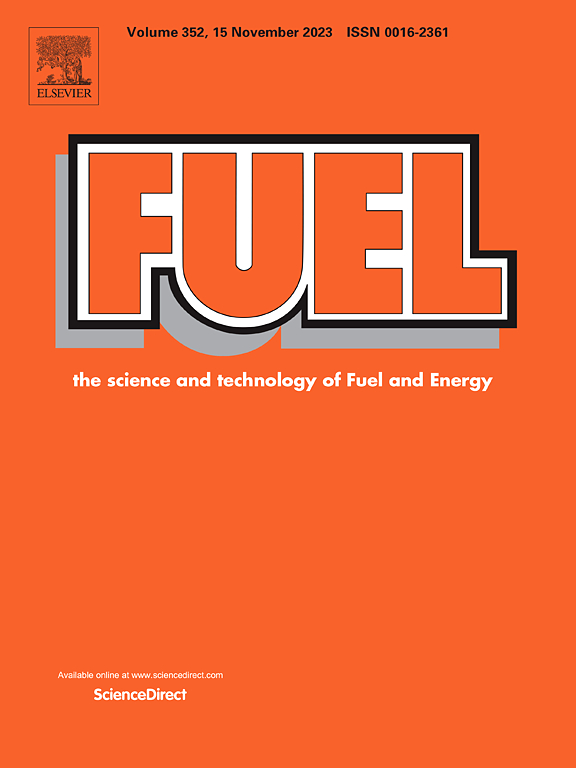水对乙醇/异辛烷混合物在高压下点火延迟时间的影响
IF 7.5
1区 工程技术
Q2 ENERGY & FUELS
引用次数: 0
摘要
在激波管中,在压力为1.2和10 atm、温度为943 ~ 1383 K、当量比为1.0、含水量为0% ~ 40%(总组分摩尔分数)的条件下,测定了加水对乙醇/异辛烷混合物点火延迟时间的影响。结果表明,在1.2 atm时,水的加入对点火延迟时间的影响是非单调的,而在10 atm时,不同温度范围内的影响差异较大。比较了五个具有代表性的文献模型的模拟结果。采用改良LLNL 2021模型和RWTH 2015模型在10atm、1300 K和950 K温度下进行化学动力学分析。反应路径分析表明,在乙醇和异辛烷点火过程中,环境含水量的增加增强了OH自由基对h原子的提取途径。灵敏度分析表明,涉及氢化学的反应对着火有显著影响。产率分析发现,加水后H原子的消耗速率和路径是影响温度依赖性的关键因素。采用虚构的稀释气法分离加水后的热动力学和化学动力学效应。本文章由计算机程序翻译,如有差异,请以英文原文为准。
Water effect on ignition delay times of ethanol/iso-octane mixtures at elevated pressures
The effect of water addition on the ignition delay times of ethanol/iso-octane mixtures was measured in a shock tube at pressures of 1.2 and 10 atm, temperatures from 943 to 1383 K, an equivalence ratio of 1.0, and water contents of 0 % to 40 % (mole fraction in total component). Results indicate that water addition non-monotonically affects ignition delay times at 1.2 atm, while at 10 atm, it has contrasting effects across different temperature ranges. Simulations from five representative literature models were compared with experimental data. Chemical kinetic analysis was conducted using both the Modified LLNL 2021 model and RWTH 2015 model at 10 atm and temperatures of 1300 K and 950 K. Reaction pathway analysis indicates that increased water content in the ambient enhances H-atom abstraction pathways by OH radicals during the ignition of both ethanol and iso-octane. Sensitivity analysis indicated that reactions involving hydrogen chemistry significantly influences ignition. Rate of production analysis identified consumption rates and pathways of H atom as key factors affecting temperature dependence after water addition. The fictitious diluent gas method was introduced to isolate thermal and chemical kinetics effects after water addition.
求助全文
通过发布文献求助,成功后即可免费获取论文全文。
去求助
来源期刊

Fuel
工程技术-工程:化工
CiteScore
12.80
自引率
20.30%
发文量
3506
审稿时长
64 days
期刊介绍:
The exploration of energy sources remains a critical matter of study. For the past nine decades, fuel has consistently held the forefront in primary research efforts within the field of energy science. This area of investigation encompasses a wide range of subjects, with a particular emphasis on emerging concerns like environmental factors and pollution.
 求助内容:
求助内容: 应助结果提醒方式:
应助结果提醒方式:


